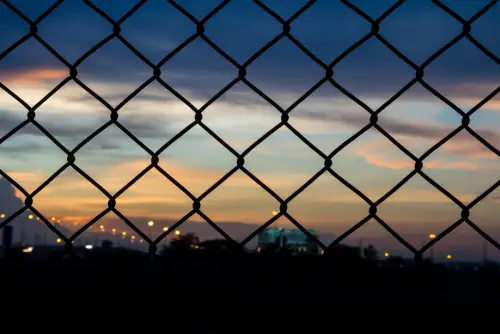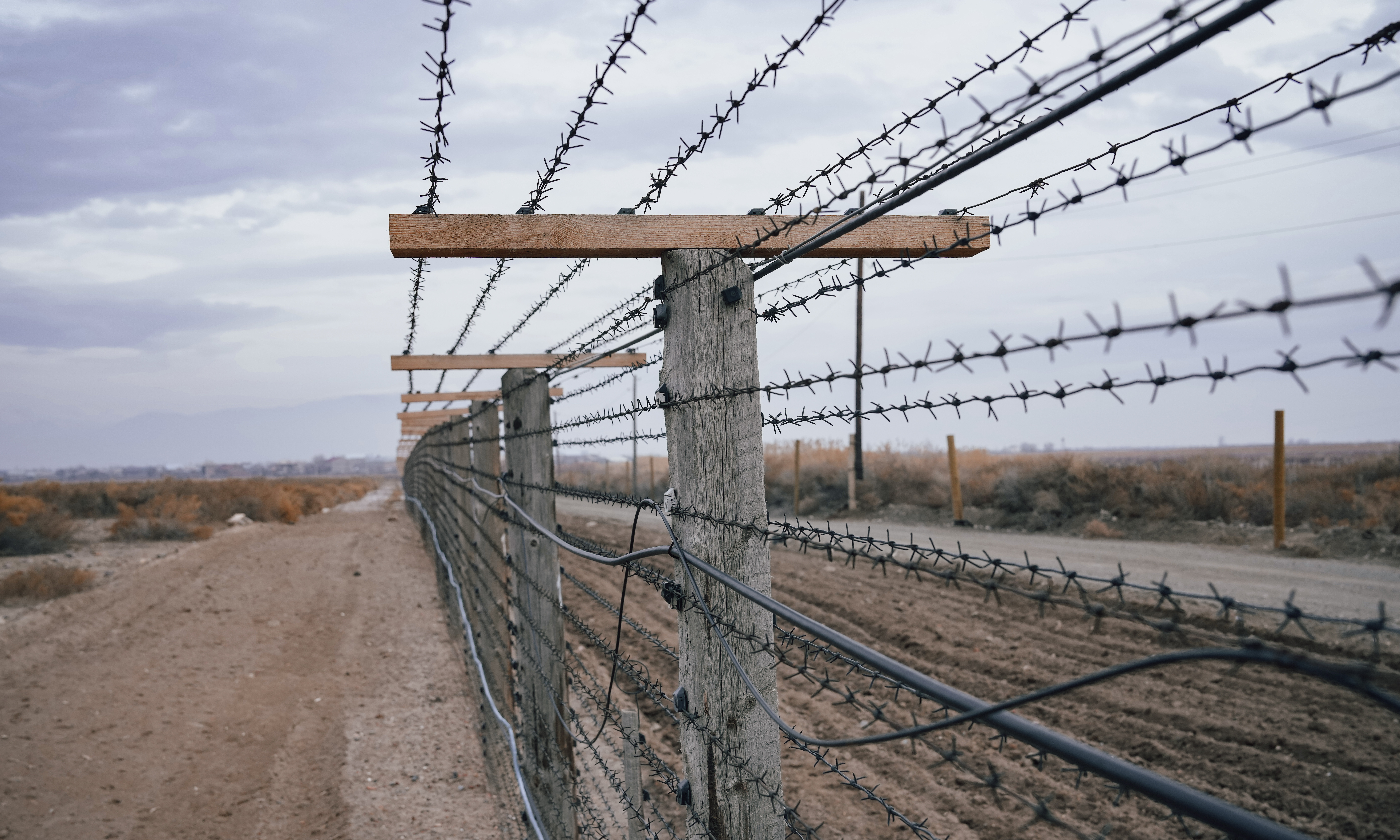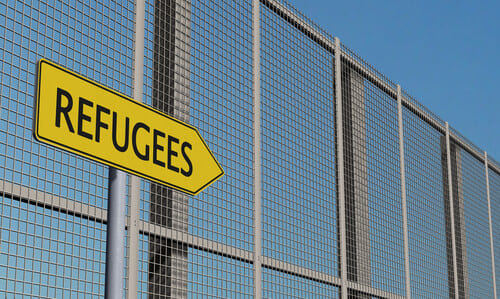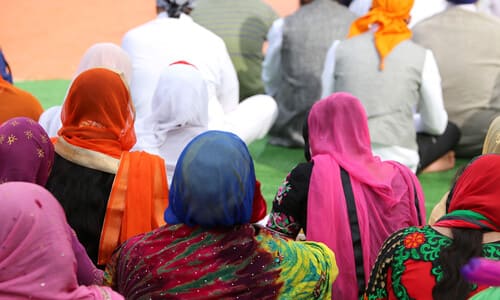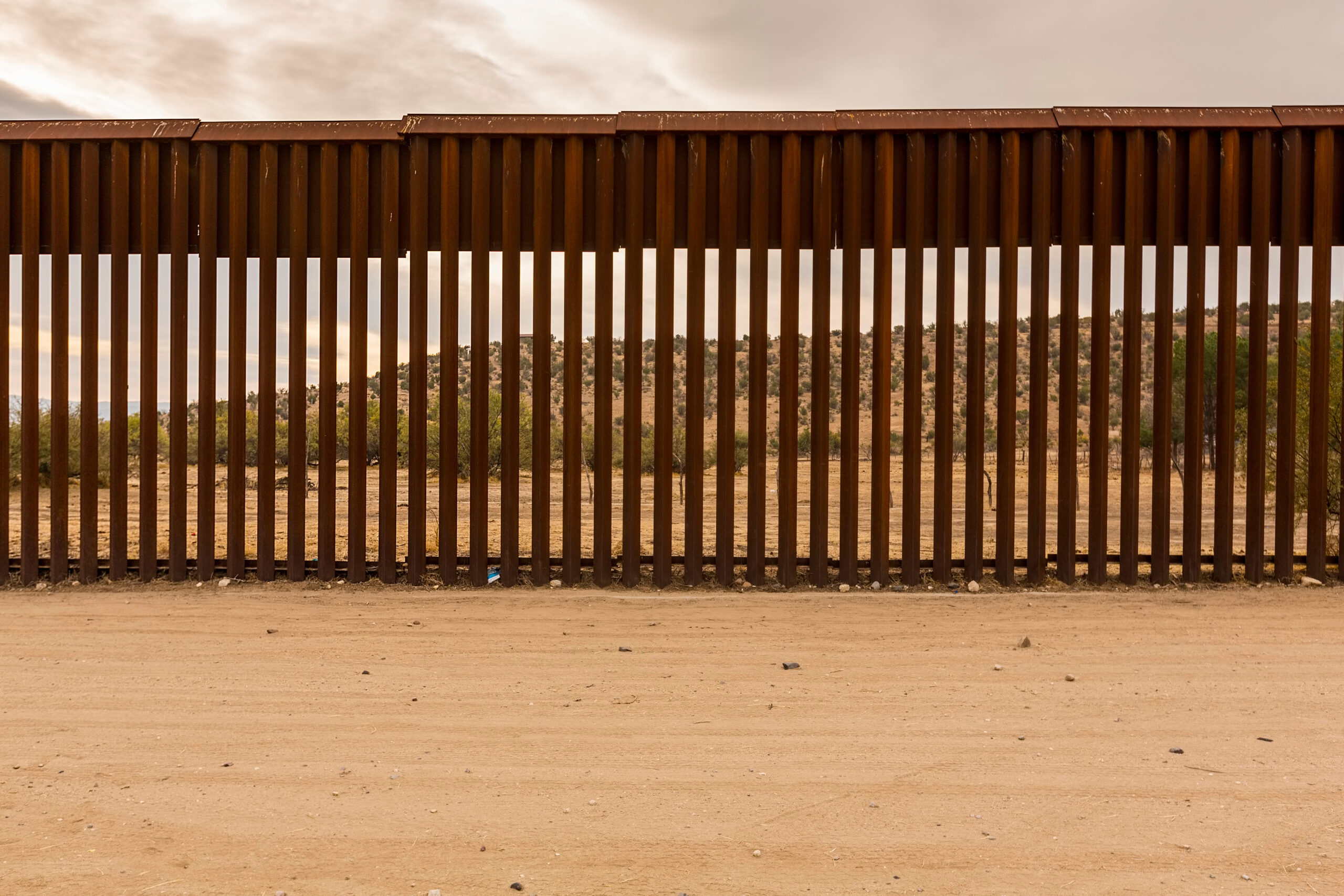As the threat of violence and political persecution in India grows under the ruling Hindu nationalist Bharatiya Janata Party (BJP), the volume of asylum seekers fleeing India to the U.S. and other countries grows in tandem.
A record 16,920 Indian citizens were taken into custody by the U.S. Border Patrol in 2022, with the overwhelming majority seeking admission into the U.S. through its asylum laws. Some of these individuals were turned away immediately at the border, but thousands were taken in as part of the U.S. asylum system, where anyone apprehended can request asylum while they face forced removal. These individuals were then put into detention centers, which include dedicated facilities operated by Immigration and Customs Enforcement (ICE), Customs and Border Patrol (CBP), and even local jails or federal prisons.
The Los Angeles Times in 2018 reported that 40% of the detainees were of Indian nationality at the ICE Imperial Regional Detention Facility in Calexico. When interviewed, many of the inmates spoke of their fear of continued pressure and abuse by local authorities and political extremists back home. They also spoke of poor conditions in detention, with many of their religious practices made impossible by the harsh treatment they received.
Current estimates for the number of total Indian asylum seekers being held in detention are difficult to obtain, but with the record-high number of border apprehensions, it is no doubt even more prevalent than it was in 2018.
Steep Rise in Indian Border Crossings Into the U.S., Asylum Requests
Indian-American immigrants are not an unfamiliar sight in the United States, especially in regions like the New York metro area, the San Francisco Bay area, and Central California.
Indians now make up the second-largest immigrant group in the U.S. overall, comprising 6% of the foreign-born population. In the past few decades, the majority of these immigrants came to the U.S. as skilled workers under programs like the H-1B visa. They would commonly secure work in highly advanced industries, such as medicine and tech while paving a path to citizenship for themselves and their families.
That trend of highly skilled and educated workers coming from India continues, with 74.5% of all H-1B applicants in 2019 being of Indian origin.
However, there is another, more distinct trend: Indians seeking entry into the U.S., hoping to be accepted under the U.S.’s asylum rules in order to avoid the credible fears they face at home.
Most seek asylum by first being apprehended at the U.S. border — on purpose. They surrender themselves to CBP agents, who will then detain them as they face proceedings for deportation and removal. These individuals can then petition for “defensive asylum,” meaning their request for asylum is a defense to being deported. The alternative, an affirmative asylum request, requires the petitioner to already reside in the U.S. legally, a much more-difficult prospect considering the challenge of entering the United States from India on a visa.
Data from the Department of Homeland Security (DHS) shows that from 2018 – 2020, there were 8,994 affirmative requests for asylum from Indian nationals versus 24,396 defensive asylum cases — 73% of the total.
Unfortunately, only about half of Indian asylum requests are granted asylum. Looking at asylum approval rates by nationality from 2001 – 2021, Indian asylum seekers had their requests declined in nearly half (44%) of cases. When just viewing 2012 – 2017 numbers provided by the 2018 LA Times report, that ratio has ticked down slightly to 42% — still a substantial portion of the population. That means thousands of individuals pay tens of thousands of dollars to have themselves or their families smuggled through a series of entry ports across the world and put in prison on U.S. soil for weeks or months, only to be turned loose again at the Mexican border.
Inhumane Conditions Documented for Detainees at ICE Facilities
Those held at ICE detention facilities endure hard conditions, including a refusal to provide the bare minimum of resources required for their adherence to their faith. Sikhs are stripped of their sacred turbans and steel bracelets, both objects required to be on their person because of their symbolism to their faith. Hindu detainees are reportedly forced to eat meals containing meat, despite their practice of strict vegetarianism. Muslims held at a facility in Florida were forced to choose between eating pork or expired meals.
The ACLU extensively documented a rash of disturbing policies during the height of the COVID-19 pandemic, including “that ICE was imprisoning medically vulnerable seniors in cramped, over-crowded cells; withholding COVID-19 tests to avoid having to deal with positive results; and retaliating against dissent by various means, including threatening to cut off access to soap.”
Just a few months ago, NPR detailed a report on how ICE facilities are extremely inconsistent with their visitation policies, describing families would travel hours and endure lengthy waits to see loved ones, only to be told later that no visits were being allowed.
Supervision Instead of Detention a Possibility — Albeit a Distant One
One form of solace individuals can take is that they may be released by CBP/ICE under a supervisory/monitoring program, meaning they can skip detention partially or entirely. Instead, they are monitored using technologies like GPS ankle monitors.
Data, however, shows that access to such a program is scant: just 3,374 Indian asylum seekers were entered into ICE’s Alternatives to Detention (ATD) program from 2020 – 2021. That means thousands more were forced into detention centers, facing possible mistreatment and violations of their crucial religious tenets.
Speak to a California Asylum Lawyer About Removal Defense and Other Options
Singh Ahluwalia Attorneys at Law has represented hundreds of thousands of individuals across all aspects of the immigration system, especially those facing the prospect of removal. We help families know what is going on with their detained loved ones, and we fight for humane conditions for all — or, at the very least, to hold agencies accountable when they violate U.S. policies.
Our experienced and compassionate California asylum attorneys provide assistance with applications for asylum, expediting hearing dates, and other services vital to protecting the rights and humanity of our immigrant population. We work to protect vulnerable populations, including the Sikh community, and speak Punjabi as well as Hindi and Spanish in order to best serve our clients.
Learn more about your legal options during a confidential case review with no obligation. Call (559) 878-4958 or contact us online to schedule your no-risk appointment today.

